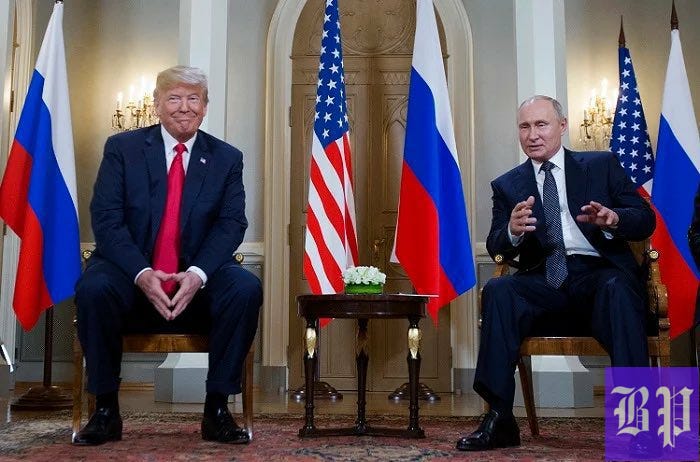Russian President Putin Confirms Readiness to Begin Negotiations with U.S. President-elect Donald Trump
Historic Talks Could Signal New Era for U.S.-Russia Relations

Russian President Putin Confirms Readiness to Begin Negotiations with US President-elect Donald Trump
In a recent development, Russian President Vladimir Putin has confirmed his openness to engage in direct negotiations with U.S. President-elect Donald Trump. The statement comes amid global anticipation over what many analysts believe could mark a shift in U.S.-Russia relations, given Trump's previous comments on improving bilateral ties.
A Positive Start for U.S.-Russia Relations
President Putin expressed optimism about working together with the incoming U.S. administration. He mentioned his readiness to discuss mutual interests, especially concerning areas where both nations have significant common ground, such as counterterrorism, nuclear non-proliferation, and global economic stability. This willingness to begin constructive talks underscores Putin's intent to explore a collaborative approach, potentially reshaping the dynamic between the two nations.
The Russian leader also highlighted the importance of diplomacy and emphasized a "relationship based on mutual respect," suggesting that both nations could benefit from a more open dialogue after years of strained relations. Observers note that this statement signals a break from the tensions that marked recent years, particularly regarding issues in Syria, Ukraine, and the NATO alliance’s eastward expansion.
Trump’s Views on Russia
Throughout his campaign, Trump voiced a different tone towards Russia compared to previous U.S. administrations. He mentioned that having a positive relationship with Russia could lead to strategic advantages in addressing global security threats. Trump’s rhetoric around potential cooperation in fighting terrorism and sharing intelligence has raised hopes for a thaw in relations. However, these views have also led to debate within the U.S., with some members of Congress urging caution.
Potential Areas for Discussion
There are several critical areas where U.S.-Russia cooperation could make a meaningful impact:
1. Syria and Counterterrorism
Both nations have vested interests in countering terrorist groups in Syria and the broader Middle East. Potential cooperation on military and intelligence operations could enhance the global fight against terrorism, a goal shared by both leaders.
2. Arms Control and Nuclear Non-Proliferation
Reducing the risk of nuclear escalation remains a priority, with both countries maintaining the largest nuclear arsenals in the world. Talks on arms control agreements and updating or renegotiating existing treaties, such as START, would be crucial in reducing global nuclear risks.
3. Trade and Economic Sanctions
Sanctions have created significant economic barriers for Russia, while U.S. companies face restricted access to Russian markets. Easing these economic tensions could open new business opportunities and allow for increased economic exchange between the two countries.
4. Cybersecurity
Given recent concerns over cybersecurity and accusations of hacking, both sides might benefit from setting boundaries and norms around cyber operations. Negotiating standards could reduce hostilities and promote stability in cyberspace.
A Cautious Optimism
While the statements from both leaders signal potential progress, challenges remain. Previous attempts to improve relations have encountered obstacles, especially on issues such as NATO's role in Eastern Europe and human rights policies. Analysts suggest that while there is room for cooperation, any progress would require careful diplomatic balancing and a genuine commitment to mutual respect and understanding.
As Putin and Trump move toward potential talks, the world will be watching closely to see if this new chapter can lead to constructive outcomes or whether past grievances will resurface. The coming months will provide a clearer picture of whether the willingness to negotiate can translate into practical policy changes, potentially setting the stage for a new era in U.S.-Russia relations.




